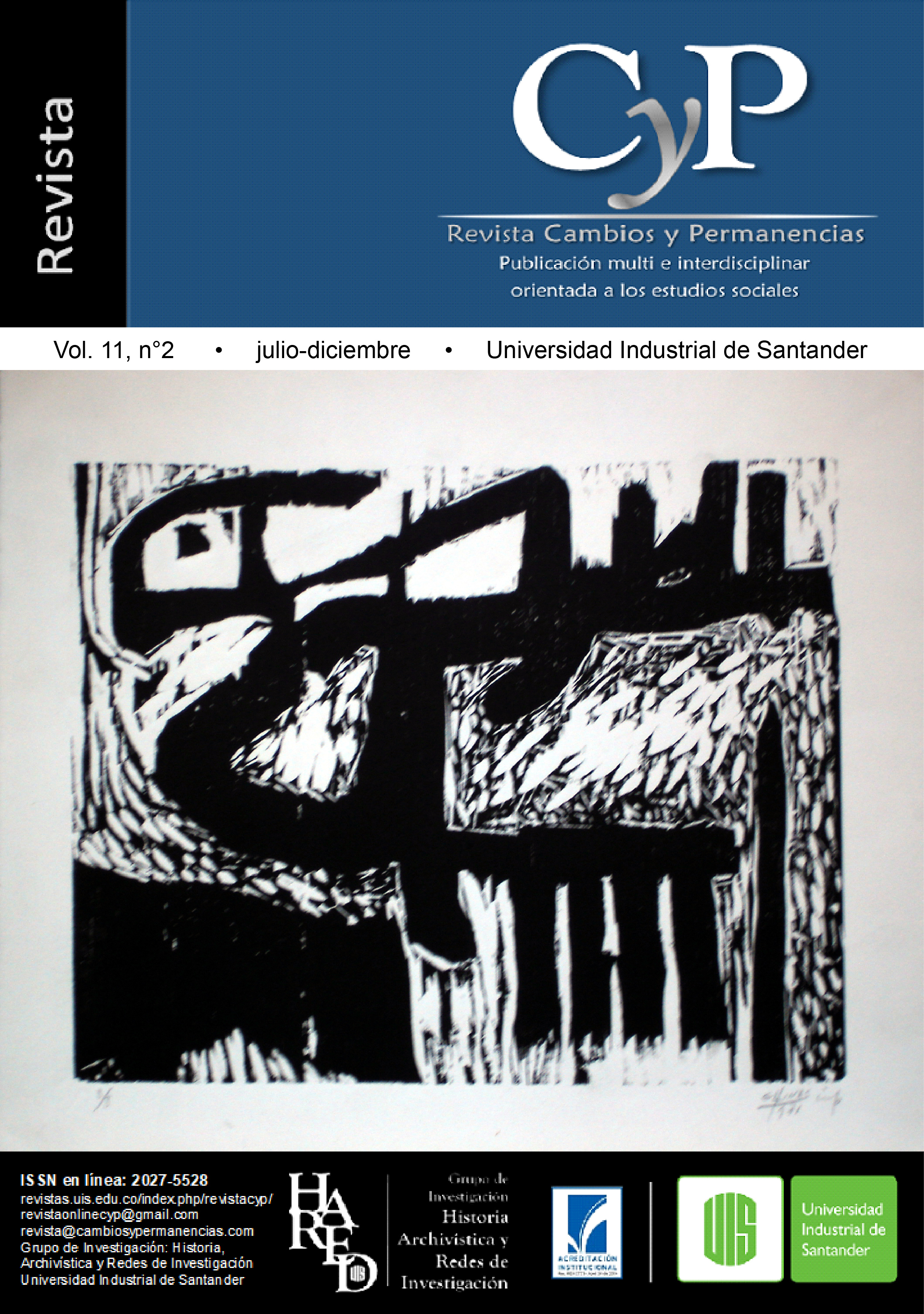Environment and Normative Goals of Development en Bolivia. A Critical View from Political Philosophy
Published 2020-12-13
Keywords
- demography,
- ecology,
- normative goals,
- modernity,
- responsability principle
How to Cite
Abstract
Philosophy could surpass cultural irrelevance if it could fructify its reflective dimension through the collaboration with the social and historical sciences of our time. One possibility of this type is represented by a multidisciplinary analysis of the actual environmental situation in Latin American countries and its close relationship with the normative goals of development in that area. The accelerated modernization (with its components: urbanization, industrialization, high living level, massive consumption) and the construction of a strong and efficient state structure build the normative goals, which till today shape the prevailing mentality in Bolivia and to some extent in the whole of the Third World. These normative goals are imitations of that which western civilization has achieved. The lack of a critical vision concerning the environmental situation and demographic phenomena avoids an effective protection of the endangered environmental systems.
Downloads
References
Artale, H. (1983). ¿Densidad de población o quizás densidad de problemas? Presencia.
Bekele, M. (1974). Contra los falsos profetas del Apocalipsis. El Correo de la Unesco, XXVII.
Contribuciones (1993). Contribuciones, X(1).
Di Natale, R. (1964). América Latina hoy: esquemas populares demócrata-cristianos. Caracas, Venezuela: Nuevo Orden.
Fucaraccio, Á. et al. (1973). Imperialismo y control de la población. Buenos Aires, Argentina: Periferia, passim.
Furtado, C. (1974). El mito del desarrollo económico y el futuro del Tercer Mundo. Buenos Aires, Argentina: Periferia.
Goethe, J. W. (1965). Faust. Der Tragödie erster Teil (Fausto. Primera parte de la tragedia) [1808]. Leipzig, Alemania: Reclam.
Gudynas, E. (1988). Ensayo de conceptualización de la ecología social: una visión latinoamericana. Cuadernos de Ecología Social, 1, 3-17.
Gudynas, E. (1994a). El desarrollo sustentable. Cuadernos de Marcha, 9(91), 24-26.
Gudynas, E. (1994b). Los malentendidos del desarrollo sustentable. Tierra Amiga, 22, 50-53.
Gudynas, E. (2001). Multifuncionalidad y desarrollo agropecuario sustentable. Nueva Sociedad, 174, 95-106.
Guimarâes, R. (1992). El discreto encanto de la Cumbre de la Tierra. Evaluación impresionis¬ta de Río 92. Nueva Sociedad, 122, 86-103.
Hecht, S., y Cockburn, A. (1989). The Fate of the Forest. Developers, Destroyers and Defenders of the Amazon. Londres, Inglaterra: Verso.
Herrera, A. O., y Scolnik, H. D. et al. (1977). Grenzen des Elends. Das Bariloche-Modell (Los límites de la miseria. El modelo Barilo¬che). Frankfurt, Alemania: Fischer, passim.
Horkheimer, M. (1970). Verwaltete Welt (Mundo administrado). Zurich, Alemania: Arche.
Jonas, H. (1984). Das Prinzip Verantwortung. Versuch einer Ethik für die technologische Zivilisation (El principio de la responsabilidad. Ensayo de una ética para la civilización tecnológica). Frankfurt, Alemania: Suhrkamp.
Kohlhepp, G. (1991). The Destruction of the Tropical Rain Forests in the Amazon Region of Brazil ─ An Analysis of the Causes and the Current Situation. Applied Geography And Development, 38, 87-109.
Little, P. D., Horowitz, M. M., y Endre N. A. (comps.) (1987). Lands at Risk in the Third World: Local-Level Perspectives. Boulder, Londres, Inglaterra: Westview.
Marcuse, H. (1968). Phantasie und Utopie (Fantasía y utopía). En A. Neusüss (comp.), Utopie (Utopía) (pp. 219-234). Neuwied / Berlin, Alemania: Luchterhand.
Marcuse, H. (1969). Versuch über die Befreiung (Ensayo sobre la liberación). Frankfurt, Alemania: Suhrkamp.
Marcuse, H. (1973). Konterrevolution und Revolte (Contrarrevolución y revuelta). Frankfurt, Alemania: Suhrkamp.
Marquard, O. (1981). Abschied vom Prinzipiellen. Philosophische Studien (Despedida de los principios. Estudios filosóficos). Stuttgart, Alemania: Reclam.
Marx, K. (1844). Nationalökonomie und Philosophie (Economía y filosofía [Manuscritos de París]. Stuttgart, Alemania: Kröner, compilación de Siegfried Landshut.
Marx, K. (1852). Carta a Engels del 19 de agosto de 1852. MEW, XXVIII.
Marx, K., y Engels, F. (1965). Die deutsche Ideologie (La ideología alemana). Berlin / RDA: Dietz.
Maurer, C. (1976). Carta del Cardenal Clemente Maurer al Presidente Hugo Banzer del 1 de octubre de 1976. Presencia.
Mesarovic, M. y Pestel, E. (1975). Mankind at the Turning Point. The Second Report to the Club of Rome. Londres, Inglaterra: Hutchinson.
Passmore, J. (1978). La responsabilidad del Hombre frente a la naturaleza. Ecología y tradiciones en Occidente. Madrid, España: Alianza.
Plaza, G. (1972). Alocución ante el pleno de la Conferencia de las Naciones Unidas sobre el Medio Humano (Estocolmo). Américas, 24(9), 3.
Primer Encuentro de “Cultura, ética y religión frente al desafío ecológico”. (1989). Ponencias del Primer Encuentro de “Cultura, ética y religión frente al desafío ecológico”. Montevideo, Uruguay.
Sanabria, H. (1993). The Coca Boom and Rural Social Change in Bolivia. Ann Arbor, EE. UU.: Michigan University Press.
Terrazas Urquidi, W. (1973). Bolivia: país saqueado. La Paz, Bolivia: Camarlinghi.
Trotzki, L. D. (1925). Kapitalismus oder Sozialismus? Eine Betrachtung der Sowjetwirtschaft und ihrer Entwicklungstendenzen (¿Capitalismo o socialismo? Observaciones sobre la economía soviética y sus tendencias de desarrollo) [1924]. Berlin, Alemania: Neuer Deutscher Verlag.
Trotzki, L. D. (1968). Verratene Revolution (Revolución traicionada) [1936]. Frankfurt, Alemania: Neue Kritik.
UNESCO. (1971). 2200 científicos se dirigen a los 3500 millones de habitantes de la Tierra (Mensaje de Menton). El Correo de la Unesco, XXIV.
Urquidi, A. (1964). Latinoamérica y el “crecimiento explosivo” de su población. Praxis, 1(1), 14.
Viola, E. (1992). El ambientalismo brasileño. De la denuncia y concientización a la institucionalización y el desarrollo sustentable. Nueva Sociedad, 122, 139-155.
Waldmann, P. (2006). El Estado anómico. Derecho, seguridad pública y vida cotidiana en América Latina. Madrid, España: Iberoamericana, passim.
Ward, B., y Dubos, R. (1973). Only One Earth. The Care and Maintenance of a Small Planet. Hardmondsworth, England: Penguin.
Wöhlcke, M. (1987). Umweltzerstörung in der Dritten Welt (Destrucción del medio ambiente en el Tercer Mundo). Munich, Alemania: Beck.
Wöhlcke, M. (1990). Umwelt- und Ressourcenschutz in der internationalen Entwicklungspolitik (Protección al medio ambiente y a los recursos en la política internacional de desarrollo). Baden-Baden, Alemania: Nomos.

